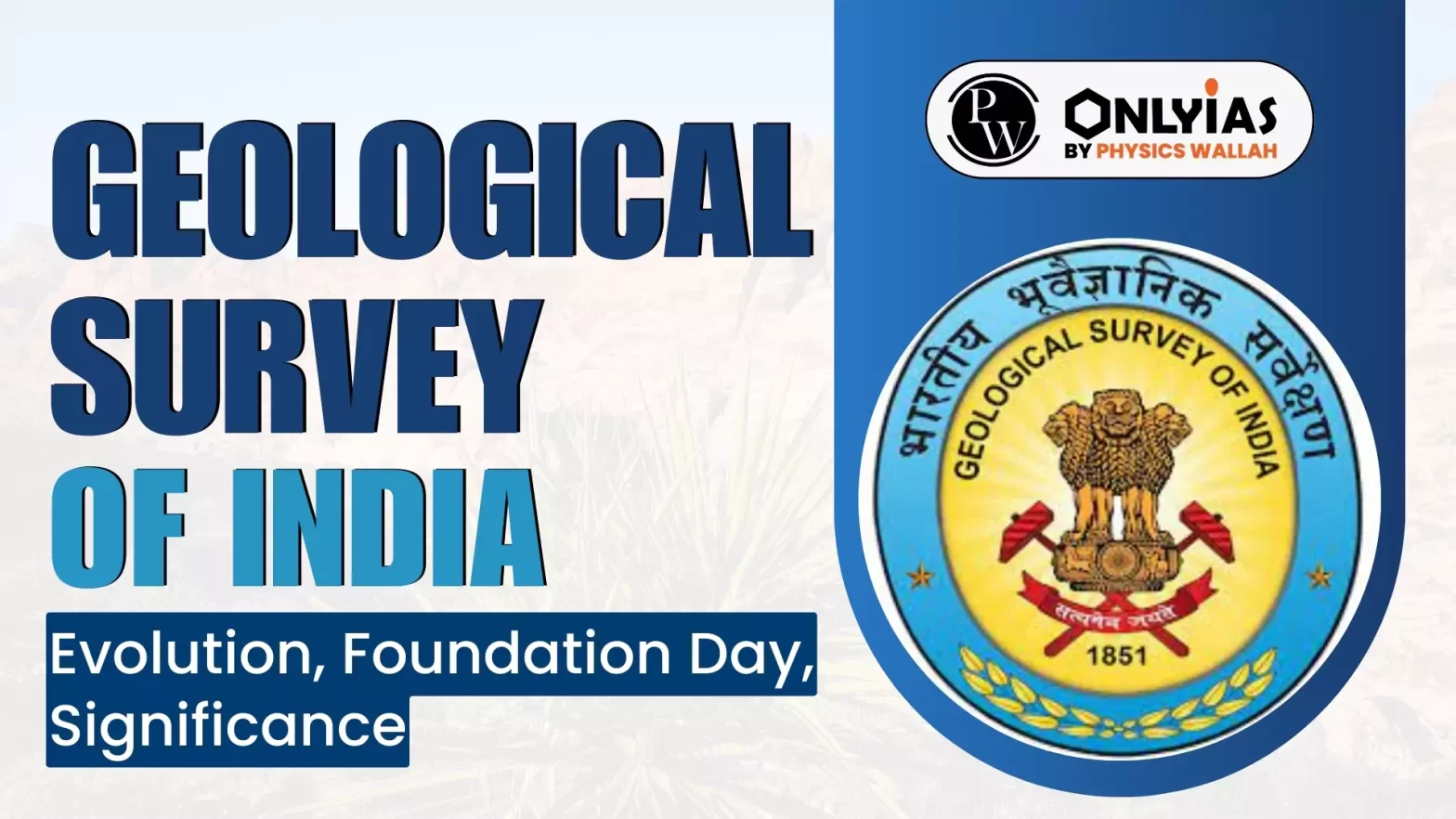
Recently, Geological Survey of India (GSI) celebrated its 174th Foundation Day on 4th March, 2024.
The Geological Survey of India (GSI) is a scientific agency under the Ministry of Mines, responsible for conducting geological surveys and studies of India. It is one of the oldest of such organisations in the world and the second oldest survey in India after the Survey of India (founded in 1767).
Geological Survey of India (GSI) Restructuring into Five Dynamic Missions
Identifying and Safeguarding Geo-Heritage Sites and Relics in India
|
|---|
The Geological Survey of India has achieved and contributed significantly to the geoscientific knowledge and development of India. Some of the notable achievements and contributions are:
| Must Read | |
| NCERT Notes For UPSC | UPSC Daily Current Affairs |
| UPSC Blogs | UPSC Daily Editorials |
| Daily Current Affairs Quiz | Daily Main Answer Writing |
| UPSC Mains Previous Year Papers | UPSC Test Series 2024 |

<div class="new-fform">
</div>